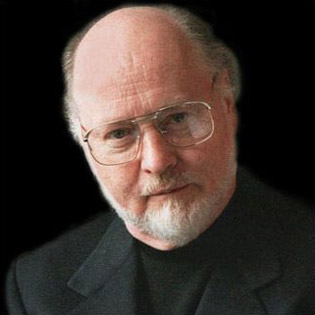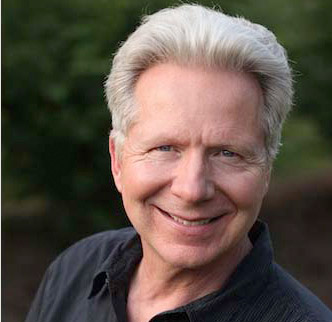

  |
|
|
||||||||||||||||||||||
|
FMS FEATURE... October 23, 2009 Williams, Mauceri Score at Walt Disney Concert Hall Classic movie music finds home and hearth in L.A.'s state-of-the-art venue by Jon Burlingame  John Williams conducted the Los Angeles Philharmonic on Friday, Saturday and Sunday, Oct. 16-18, at Walt Disney Concert Hall. The theme was "Music from the City of Angels" and, as Williams pointed out, new music director Gustavo Dudamel wanted a film-music concert during his first weeks in L.A. because of its importance to the history of music-making in Los Angeles. The major work on the program was the half-hour "Suite from Memoirs of a Geisha," drawn from his Oscar-nominated 2005 score and adapted into a virtual cello concerto. The soloist, German-Canadian cellist Johannes Moser, drew extraordinary sounds from his instrument and performed with the kind of joy that distinguishes the playing of Yo-Yo Ma (for whom the work was written). Although the score has been modified for conventional Western orchestra, the Japanese flavor remains present throughout the Geisha suite, especially in the delicate second movement ("Going to School") and the colorful fourth ("Brush on Silk," featuring seven percussionists). The first ("Sayuri's Theme") was elegant, the third ("The Chairman's Waltz") featured a stunning duet with Moser and concertmaster Alexander Treger. Added to the program for Saturday and Sunday was Williams' seven-minute "Elegy for Cello and Orchestra," which had its origins in Williams' 1997 score for Seven Years in Tibet. The first half included six scores spanning 35 years of Hollywood history, including Erich Wolfgang Korngold's 1939 The Private Lives of Elizabeth and Essex, with its fanfares and gorgeous love theme; Alex North's 1960 Spartacus, whose music, Williams said, suggested "the brutality of Roman aggression"; and music of Bernard Herrmann ("a curmudgeonly, often irascible, amazingly erudite man") for Alfred Hitchcock's 1958 Vertigo. Williams concluded the first half with a trio of classic noir scores that he called an "L.A. Triptych": Franz Waxman's 1950 Sunset Boulevard, with its "exaggerated habanera" for Gloria Swanson as Norma Desmond; 1974's Chinatown by Jerry Goldsmith ("a fantastic colorist... an uncanny sense of where the soul of each scene happened to be"); and 1944's Double Indemnity by Miklos Rozsa ("an elegantly educated musician," Williams said, who could "write a perfect double fugue during the lunch hour that might take the rest of us three days"). The "Triptych" was a highlight of the concert for many, including the urgent opening of Sunset Boulevard, the brilliant solo trumpet performance (by Donald Green) in Chinatown and the dramatic intensity of Rozsa's doom-laden Double Indemnity.  Mauceri – who is now chancellor of the University of North Carolina School of the Arts – was welcomed back warmly by the crowd. He began with his signature line, "Good evening, I'm John Mauceri and this is the Hollywood Bowl Orchestra," but after "I'm John Mauceri" the cheers drowned out the rest. Mauceri designed the entire program and, as he always did at the Bowl, introduced each piece with relevant and often fascinating background information. Elfman was present for the unveiling of the five-minute Nightmare overture, based on his score for the cult-favorite 1993 Tim Burton film. Mauceri followed it with a seven-minute suite from Tchaikovsky's 1890 ballet score for Sleeping Beauty, which Disney staff composer George Bruns adapted for Disney's 1959 animated feature. The highlight of the first half was the three-movement suite that Mauceri assembled – with composer Zimmer's blessing – from what he called "the energetic and kaleidoscopic score" of the immensely popular Pirates of the Caribbean trilogy (2003, 2006, 2007). The first movement, "The Living and the Dead," featured wordless choir and the weird, ominous sounds of the netherworld; the second movement, "Jack Sparrow," suggested Johnny Depp's character with a drunken sea chanty; and the final movement, "Hoist the Colors and Drink Up, Me Hearties," opened with a boy soprano singing the song from the third film, At World's End, which shifted into a triumphal march. As a lighthearted postscript to the Zimmer score, the ensemble offered a lusty choral rendition of Bruns' original song ("drink up me hearties, yo ho!") from the Pirates ride that still runs at Disneyland. A six-minute suite from The Lion King (1994) concluded the first half. While its centerpiece was the Elton John-Tim Rice song "Circle of Life," it was surrounded by the colorful, African-inspired music by Zimmer and his collaborator Lebo M. The audience jumped to its feet at its conclusion. That was nothing, however, compared to the audience response to the Snow White segment, which occupied the entire second half of the program. Mauceri, working from the original "yellowing manuscripts" of the 1937 music and script, condensed the story and score down to 54 minutes. He retained all but one of the Frank Churchill-Larry Morey songs and much of the Leigh Harline-Paul Smith underscore, "music of love and hate and hope and triumph," in Mauceri's words. Mauceri conducted the 85-member Bowl Orchestra and a 64-voice choir from Cal State Fullerton University while 10 singer-actors – positioned to the left and right of the podium – played Snow White, the Prince, the evil Queen and seven Dwarfs. The results were mesmerizing – variously enchanting, amusing and terrifying, just like the film but in this case accomplished with music and voice. Ashley Brown (Broadway's Mary Poppins) was a letter-perfect Snow White, both in voice and demeanor; Ruth Williamson was extraordinary as the Queen, her wild cackle and frightening looks enough to scare a 7-year-old right out of the theater; and Blake Griffin was the Prince. All seven Dwarfs were wildly entertaining, with Jeffrey Polk (Doc) and Rick Wasserman (Grumpy) particularly memorable. Classic songs including "I'm Wishing," "Whistle While You Work," "Heigh-Ho," "Some Day My Prince Will Come" and "One Song" were beautifully rendered, but some of the surprising moments came in the clever bits of business conceived by Mauceri – having two members of the chorus whistle like birds during the forest scenes, having another serve as the "echo" of Snow White's voice during "I'm Wishing," and minimizing the sound effects in favor of the atmospheric music by Harline and Smith. They were two of Disney's finest in-house composers, and their colorful work takes center stage in this new "symphonic retelling." Mauceri later quoted a musician as saying, "this is like an opera that nobody knows." The cheers and standing ovations that followed (not to mention the applause that the encore, "True Love's Kiss" from Enchanted, received) lasted for several minutes. Some members of the audience wept openly, having re-experienced Snow White and the Seven Dwarfs in an entirely unexpected, totally musical, way. Could future editions feature similar retellings of Pinocchio, Bambi or Cinderella? ©2009 Jon Burlingame |
Search
Past Features
Feature Archives
|